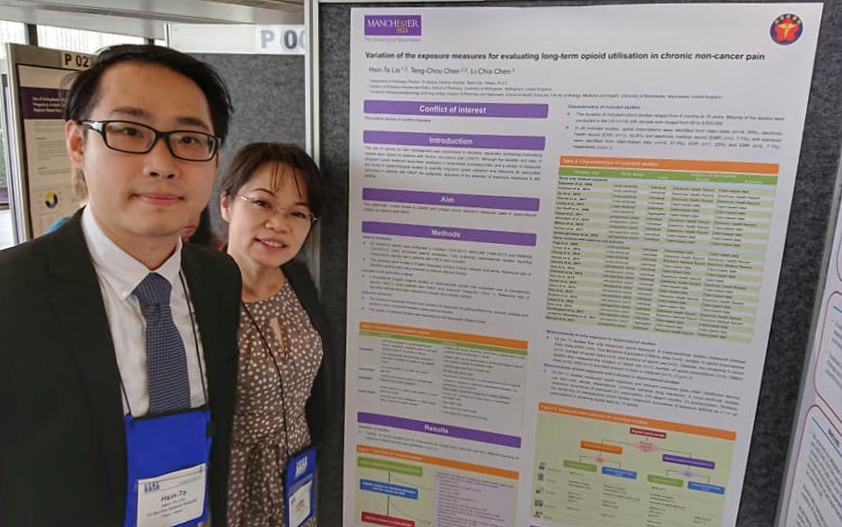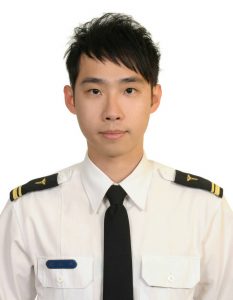
Continuing professional development abroad
Since childhood, my impression of studying abroad was something that only people with a wealthy family background could do. However, the idea of studying abroad was getting even stronger as I beheld many of my high school classmates chose to study abroad. I do expect one day I could go abroad for study and conduct scientific research at an English setting.
In 2017, I had an opportunity to be a visiting researcher at the prestigious University of Manchester for six months (from October 2017 to March 2018) supervised by Dr Li-Chia Chen, the senior lecturer in pharmacoepidemiology. After returning to Taiwan, many people asked me about the procedure and experience of applying for a short-term visiting programme in the United Kingdom (UK). Therefore, I would like to share my experience with everyone who might be interested in the following six domains.
1.Acquiring funding
Most European and North American countries offer studentships to talented international students or researchers. However, as a pharmacy practitioner, I need to self-fund the study as I do not belong to any of these two classifications. Fortunately, I have a military background, so I could be funded by the Ministry of National Defense, which includes the tuition fee of 5,000 USD for six months and living expenses of 1,500 USD per month. As far as I am aware, Chang Gung Medical Foundation, Taipei Veterans General Hospital (both medical centres in Taipei, Taiwan), and other medical centres sponsor their employees to study abroad as well. Alternatively, the Ministry of Science and Technology and the Ministry of Education websites routinely release relevant funding information.
2. Locating host research institutes
To find a host institute, you should consider the research interests and fields, e.g., lab-based study, database analysis, or systematic review and meta-analysis. I searched for the top 50% of pharmacy divisions in the universities worldwide that the Ministry of Defense recommended. I sent my CV and recommendation letter to potential supervisors and the division’s staff to check the opportunities. However, I would discourage this approach as most emails you send will likely be ‘sink into the ocean.’ Alternatively, suppose your institution or workplace has an existing collaboration with international institutions. In that case, it might be an excellent place to start and enhance the success of your application.
3. English ability and language test
Learning a foreign language, e.g., English, in a local context requires extra effort. It means you must spend a lot of time levelling up your English from intermediate to advanced level. If you want to study abroad, please decide early and take some time to improve your language. For instance, reading English novels and watching English media (BBC, CNN) are good ways to improve your language ability. If you aim to pass the language test quickly, you can join some external training programmes, which can be found online.
4. Letter of recommendation
I am unsure if the recommendation letter impacts the success of application for visiting programme. However, it is regarded as a piece of essential evidence required in your application. If you plan to study abroad, you should start contacting your academic tutors or line managers and ask their willingness to be your referees.
5. Work and academic experience
Each top University in the UK attracts a vast number of talented students or researchers annually, so, you should prove that you are exceptional and experienced. It would be helpful if you committed to generating some scholarly outputs during your visit, e.g., conference posters, academic articles, etc. Therefore, you should put your professional experience in related fields (taking pharmacists as an example, medical committee, chief pharmacists, clinical pharmacists, etc.) in your CV or show that you have publications. These results can catch the potential supervisor’s eye.
6. Visa requirement
After being awarded a visiting researcher position, the University will issue a sponsor letter for visa application with a sponsorship number required for applying for a visa from the UKVI website. Much online information is available to guide the visa application processes. Ensure that you have sufficient time to apply for the visa. A short-term visiting programme requires a TIER 5 visa (same as the working vacation visa). To apply for a UK visa in Taiwan, you must book an appointment online at the Visa Centre (the only one located in Taipei) and prepare all required documents well. Once the application is accepted, it will be sent to the UK for review and will require at least one month to receive the result in Taiwan. This is different to a quicker process of applying for a TIER 4 for studying master’s and PhD programmes, as applications will be reviewed in Philippines.
In summary, time management is the key. Thinking about what you want to do and preparing relevant documents and language qualifications as early as possible. Remember, no pain, no gain. I hope these experiences benefit those who want to continue their professional development abroad.

Hsin-Te Lin
Executive officer
Pharmaceutical Management Division, Medical Affairs Bureau, Ministry of National Defense, Taiwan






0 Comments